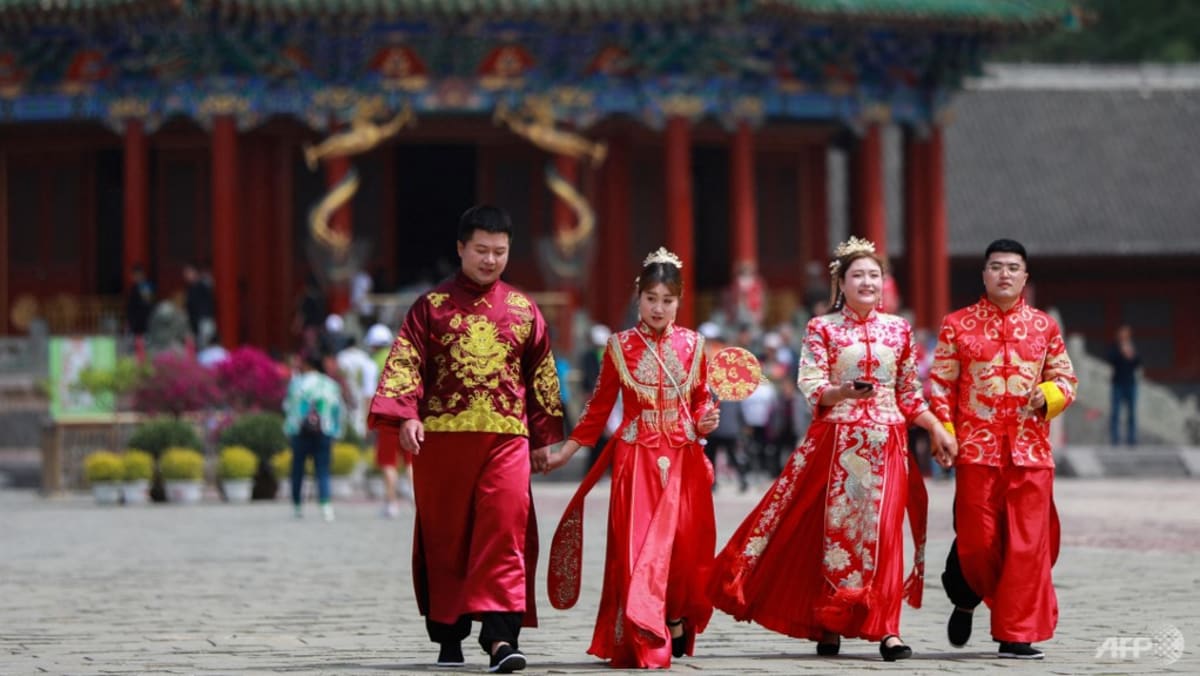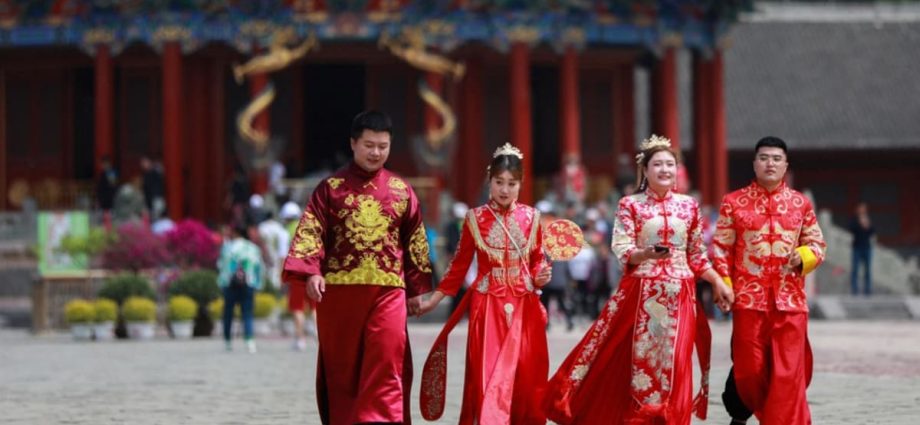
Speaking to the state broadcaster on Monday (Jul 29), the university’s vice president Zhao Hongguang said graduates can pursue careers in industry associations, marriage agencies, or family and marriage counselling organisations, to name some.
According to Ms Yu, there is currently a lack of highly trained professionals in the wedding and matchmaking industries in China. There has also been increasing demand for people who can provide “sophisticated wedding planning services and design and develop matchmaking services”.
The unveiling of a marriage-related degree comes as the country of 1.4 billion people keeps up a concerted push to encourage marriages and childbirth in turn, especially as the implications of a declining population weigh heavy.
The number of marriages in China has been going down for close to a decade, aside from a post-pandemic rebound in 2023. While the number of newlyweds rose to 7.68 million last year, a 12.3 per cent on-year jump, it’s still far below the peak of 13.47 million couples in 2013.
Marriage rates are closely tied to birth rates. But more women in the country are choosing to stay single, amid record youth unemployment and an economic downturn.
According to official data, China’s single population aged over 15 hit a record 239 million in 2021. That same year, a Communist Youth League survey of about 2,900 unmarried urban young people also found that 44 per cent of women do not plan to marry.
In March, Chinese Premier Li Qiang pledged that the government would work towards “a birth-friendly society and promote long-term, balanced population development”, as well as reducing the cost of childbirth, parenting and education.
He said the country would improve policies to boost birth rates by “refining parental leave policies, improving the mechanism for sharing the related labour costs of employers and increasing the supply of childcare services”.

